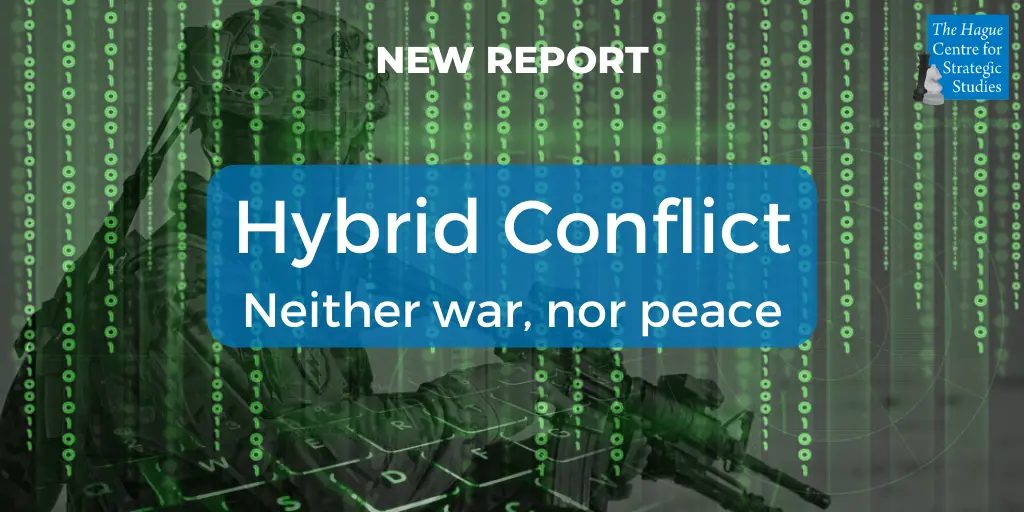Research
Hybrid threats are increasing, and the Netherlands, together with partners in its network of alliances, requires a new strategic posture to counter these threats. This report by TNO & HCSS serves as a background document in preparation of a hybrid conflict game organised by TNO in collaboration with HCSS.
Authors Tim Sweijs, Samuel Zilincik, Frank Bekkers and Rick Meessen present a strategic framework that describes and explains relations between strategies and counter-strategies in dealing with hybrid threats and offer considerations to select those dominant strategies that are to be part of the Dutch strategic posture.
The framework presented in the report consists of two escalation axes. The vertical axis consists of five general strategies: (1) cooperation, (2) persuasion, (3) protection, (4) coercion, and (5) control. The horizontal escalation is comprised of the well-know DIMEL categorization of instruments and measures of state power.
The above-mentioned five strategies can be employed simultaneously or sequentially in order to counter hybrid threats. Additionality, these strategies can be exercised through and across the six DIMEL-domains of diplomacy, information, cyber, economy, military, and legal.
These theoretical propositions however, need to be further developed and tested. In light of this, these insights will be refined in a simulation environment in the form of a table-top game. By doing this, further light will be shed on how the strategies presented in this report function in a (simulated) competitive setting and subsequently help refine and inform the crafting of effective cross-domain strategies in real world scenarios.







